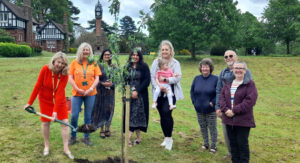New domestic abuse guidance for social workers
The British Association of Social Workers (BASW) has launched new guidance for child and family social workers supporting victim-survivors of domestic abuse.
This comes after domestic abuse charity, Refuge, revealed it has received a 61% increase in calls and contacts, as perpetrators weaponised lockdown conditions to further assert control.
BASW said the increased demand for support coincides with severe cuts to domestic abuse services, with 86% experiencing one or more financial impacts as a result of Covid-19.
It is also timely given the heart-breaking news of the death of Sarah Everard, as well as those of women of colour, such as Blessings Olusegun, Nicole Smallman and Bibaa Henry, whose families still lack justice and answers.
The guide was developed in collaboration with valued stakeholders including Women’s Aid, Galop, Southall Black Sisters, Sign Health, Karma Nirvana, Respect, AVA, Ann Craft Trust, Dr Michaela Rogers at the University of Sheffield, as well as people with lived experience and BASW members.
BASW said an intersectional approach has been adopted throughout the guide, which recognises the interconnecting forms of oppression on survivor’s identities and lived experience of abuse and services.
Such factors include, but are not limited to, race, age, religion, culture, immigration status, deafness, disability, LGBT+ rights, mental health, multiple disadvantages (including substance use and addiction) and poverty.
The guide aims to provide social workers with a trauma-informed understanding of patterns of domestic abuse within the above-marginalised groups, as well as best practice and current research. BASW said it aims for the guide to be as inclusive as possible, recognising that victims/survivors identify with a range of gender identities.
It also wishes to acknowledge that most victims/survivors are women, and that domestic abuse is a gendered crime, rooted in patriarchy, misogyny and male violence, and refusing to recognise this ignores the established evidence base and minimises women’s experiences.
BASW said it hopes to carefully balance validating the experience of male victims/survivors in all their fullness, while also recognising that the broader picture shows that statistically, women are at greater risk.
BASW is inviting social workers to continue to advocate for a culture shift where women and girls can live in a society free from male violence and domestic abuse.
Click here to download BASW’s domestic abuse guidance.
Photo Credit – Pixabay















